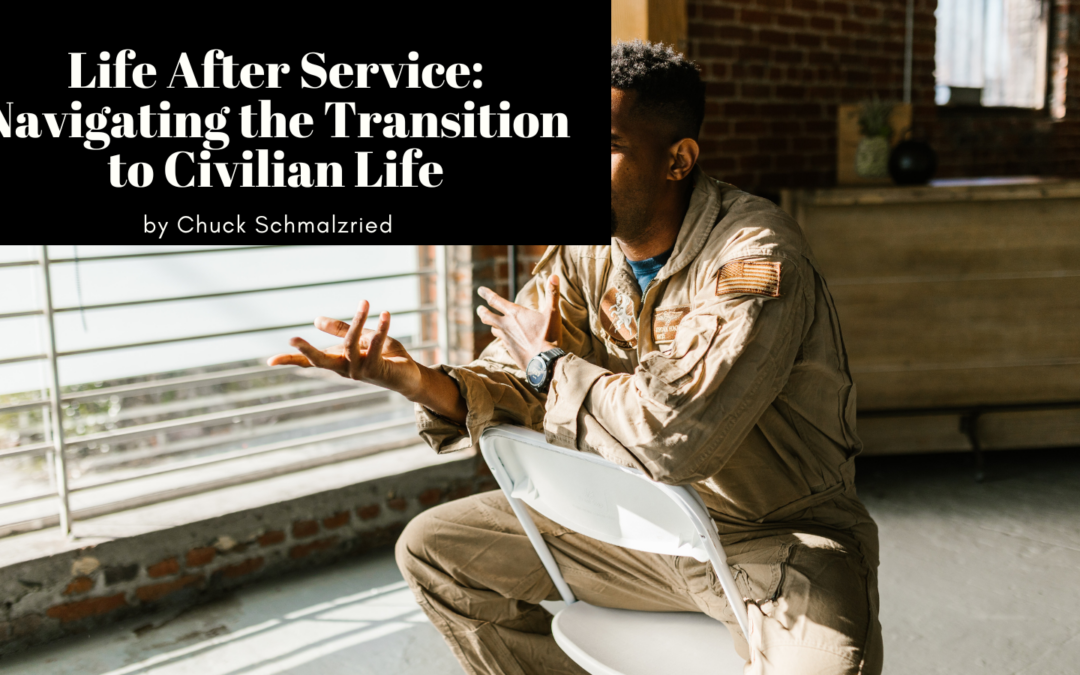The transition from military service to civilian life marks a significant shift in one’s journey. This transition can be exciting and challenging for veterans as they adapt to a new way of life, build civilian careers, and redefine their purpose. Navigating this transition requires careful planning, support, and a positive mindset. Let’s explore some key aspects of life after service and how veterans can effectively navigate this vital phase.
Reflection and Goal Setting: As veterans step into civilian life, reflecting on their skills, interests, and aspirations is crucial. Setting short- and long-term goals can provide a sense of direction and purpose. Whether pursuing higher education, starting a new career, or becoming involved in community service, defining objectives can help structure the journey ahead.
Leveraging Transferable Skills: The skills gained during military service are highly transferable to civilian careers. The civilian workforce highly values abilities like leadership, problem-solving, teamwork, and adaptability. Veterans should identify how these skills align with their desired career paths and effectively communicate them to potential employers.
Networking and Mentorship: Building a civilian network is essential for career growth. Veterans can connect with fellow veterans, industry professionals, and mentors who can offer guidance, insights, and opportunities. Joining veterans’ organizations, attending networking events, and utilizing online platforms can help veterans establish valuable connections.
Education and Training: Further education or training can enhance veterans’ qualifications and open doors to new career opportunities. Many veterans find that using their GI Bill benefits to obtain a degree or certification is a valuable investment in their post-service future.
Resume and Interview Preparation: Crafting a civilian-friendly resume is vital. Veterans should translate their military experience into language that civilian employers can understand. Additionally, practicing interview techniques and preparing for common questions can boost veterans’ confidence during job interviews.
Mental and Emotional Well-being: Transitioning to civilian life can be emotionally challenging. Veterans may experience a range of feelings, from excitement to uncertainty. Seeking support from fellow veterans, family, friends, and mental health professionals can provide the necessary tools to navigate this emotional journey.
Exploring New Hobbies and Interests: Embracing new hobbies, interests, or volunteering opportunities can be a fulfilling way to channel energy and explore new passions. Engaging in activities that align with personal interests can provide a sense of purpose and help veterans establish a sense of belonging in their civilian communities.
Financial Planning: A solid financial plan is crucial for a successful transition. Veterans should create a budget, manage their finances wisely, and explore available resources, such as financial counseling and VA benefits.
Maintaining Health and Wellness: Staying physically active and healthy is essential. Regular exercise, proper nutrition, and adequate sleep contribute to overall well-being and assist in managing stress.
Patience and Adaptability: Transitioning to civilian life is a process that takes time. Veterans need to remain patient and adaptable as they navigate new challenges and opportunities.
Ultimately, life after service is a unique journey for each veteran. By embracing change, seeking support, and setting achievable goals, veterans can successfully transition to civilian life, finding new avenues for personal and professional growth while honoring the valuable skills and experiences gained during their military service.
